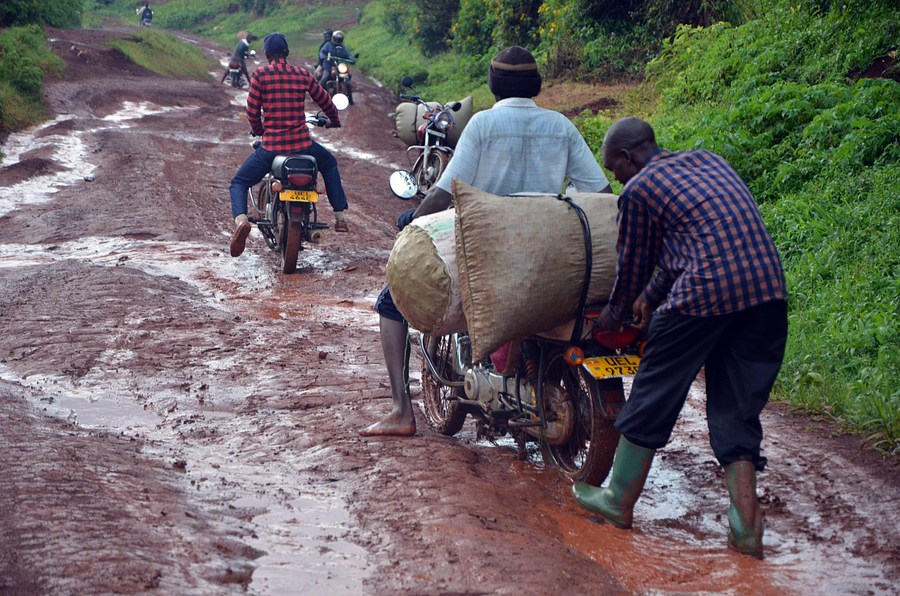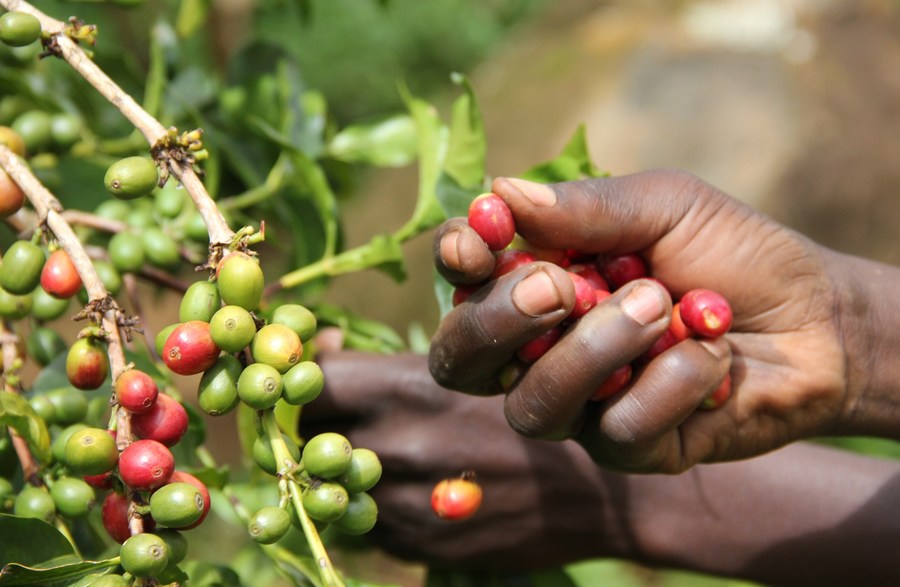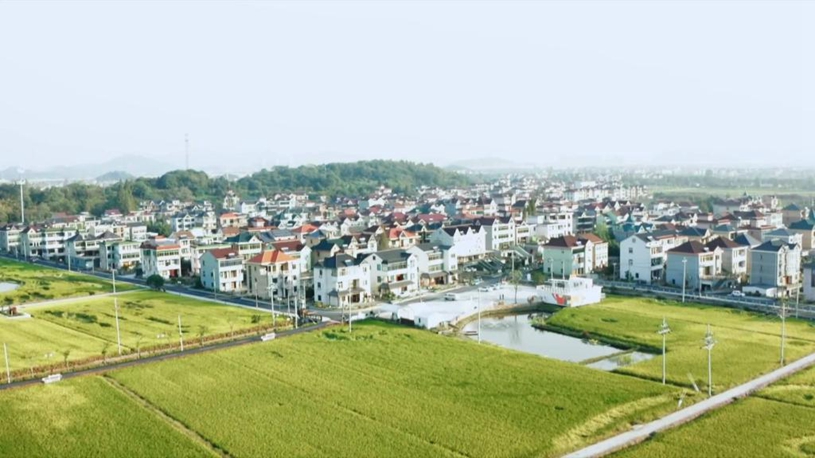
A motorcycle rider ferries arabica coffee cherries in Kamu town council, Bulambuli district, eastern Uganda, April 28, 2018. (Xinhua/Daniel Edyegu)
Far away from the coffee aroma in a cafe in Chicago, London, or Guangzhou, in the remote mountainous village of Kikobero, Bulambuli district, eastern Uganda, Samwiri Nangoli tends to his coffee trees, a skill set passed onto him by his forefathers.
BULAMBULI, Uganda, Nov. 13 (Xinhua) -- Far away from the coffee aroma in a cafe in Chicago, London, or Guangzhou, in the remote mountainous village of Kikobero, Bulambuli district, eastern Uganda, Samwiri Nangoli tends to his coffee trees, a skill set passed onto him by his forefathers.
From his childhood, the 75-year-old Nangoli, just like many children in the neighborhood, was taught that coffee is the major source of income to a family. It is a family tradition passed down from generation to generation.
In this part of the east African country, when a boy is being initiated into adulthood, he is given several coffee trees as a startup to a new life. And so did Samwiri pass on the skill to Martin Nangoli, who now travels the world's major capitals selling specialty coffee from this remote village tucked on the slopes of the extinct Mount Elgon, shared by Uganda and Kenya.
Nangoli told Xinhua in a recent interview that during the political turmoil in the 1970s, he used to scale the mountain and smuggle coffee to neighboring Kenya.
"It was a difficult time, I had to smuggle coffee in order for my children to survive. Through the earnings, I managed to provide basic necessities like salt, and sugar and also pay their tuition fees," Nangoli said.
Years on, his son Nangoli introduced better farming skills in the village which increased the coffee yields. Through his organization, Kikobero Coffee, the village now exports coffee to London and is now targeting new markets like the Balkans. Some of the coffee proceeds have been used to build two primary schools in the village in efforts to increase the literacy level among youngsters.

Photo taken on Sept. 9, 2014 shows the arabica coffee in Mbale, east Uganda. Arabica coffee farmers in this region are expecting bumper harvest due to the adequate rains and minimal natural disasters during the season. (Xinhua)
Some parents who can not afford to pay school fees are encouraged to bring coffee to the school administration as a form of payment, according to Nangoli.
Kilometers away, in Kween district, Alfred Boyo Mashandich, a retired medical doctor supervises the coffee value chain right from the tree to the point of export.
Mashandich, who also runs a coffee company, Masha Coffee, which buys from dozens of farmers, in an interview with Xinhua, referred to coffee as the backbone of families in most of rural Uganda.
He reminisces about the olden days when he together with his siblings, under the guidance of their father, tended to the coffee trees. It was from this coffee that they derived their livelihood.
"Coffee is a culture. We all grew up when our parents were growing coffee. Ourselves, we inherited part of our coffee farms from our parents," Mashandich said.
"Back then it was on subsistence, what we are trying to do is to bring it to a commercial scale," he added.
Mashandich has a mini coffee processing plant in his compound and the majority of the workers are youths. Mashandich argues that there must be a deliberate effort to involve young people in the coffee value chain.
"We would like to have coffee produced sustainably and there is no way you can do that if you don't involve young people," he said. "Involving them along the value chain is extremely important. They begin to see the value, they begin to see it as a productive enterprise."
Eunice Chekaptui, 29, a coffee enthusiast, argued that coffee takes three to four years before harvesting starts. She said most of the youths are not that patient, they want quick money.
"If you look at the trend, majority of the coffee farmers are actually elderly people, so you find that if we don't involve the young, the chain may cut at some point," Chekaptui said, noting that the youths need to look at coffee farming as a business.
"If you show them the economics involved, if you grew one acre of coffee versus one acre of Irish potatoes, the difference is way too big," she said, noting that once the coffee matures, one can keep harvesting for a period of 10 years, from the same coffee trees.
The government is now urging farmers to scale up coffee farming with a target to increase production to 20 million bags by 2030, and triple the income of 1.7 million households that derive their livelihood from coffee. According to the country's coffee roadmap, the government is targeting to reap up to 2.2 billion U.S. dollars per year from the sector by 2030.
Apart from the traditional markets in Europe and U.S., Uganda is now looking at new markets like China and the Balkans.
For the traditional markets, coffee enterprises are now focused on specialty coffee, a coffee process monitored from the tree to the cup. In specialty coffee, farmers are not allowed to use agrochemicals to spray pests and diseases. The coffee cherries are carefully hand-picked and dried. Janet Chekwoti, a smallholder farmer, said while the process of taking care of specialty coffee is tedious, it fetches premium prices which have improved farmers' livelihood. ■












